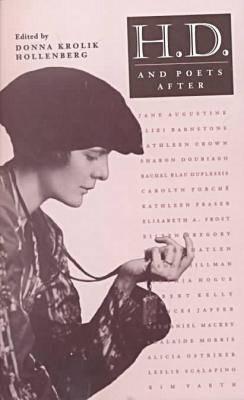

 |

|

The average rating for H. D. and poets after based on 2 reviews is 5 stars.
Review # 1 was written on 2016-08-01 00:00:00 Kenneth Landsbaum Kenneth LandsbaumO'Leary's central chapter, on Robert Duncan's "My Mother Would Be A Falconress," is the largest, most creative reading of Robert Duncan in the secondary literature. He begins in close reading, noticing the extent to which the poem is a belated response to the death of the poet's mother, in December 1960. Using photographic reproductions of the "Copy Book" entries Duncan made in late summer, 1964, O'Leary demonstrates the poem was practically dictated to RD in a dream-like state, which finding allows O'Leary to argue that the poem partakes of three different mythological figures crucial to Duncan's imagination in Bending the Bow. These are Eros/Anteros, Orpheus, and Narcissus, the latter two interpreted throughout O'Leary's book at large. O'Leary argues that Duncan's poem after the death of his mother is a poem of healing, and to argue this he introduces concepts from Mircea Eliade, on the shaman, and Freud's reading of the Narcissus myth in his essay on Leonardo. Julia Kristeva, on the Black Sun of melancholy, and Kirk and Raven, on Parmenides, also authorize O'Leary's reading. The idea is generous: we would not at first find in "My Mother Would Be A Falconress" a shamanistic ritual of a "technician of the sacred," however, employing Duncan's own use of "psychosis" as the compelling motive of telling, or myth-making, O'Leary reasonably demonstrates that Duncan's poem is a Crisis Ode (though these terms O'Leary doesn't use) trying to construct a more complex formulation of self and soul. Psychosis is the self's soul-life, as O'Leary reads out Duncan, and the enactment of its reconfigured terms is the telling of a new Black Sun, or writing through melancholy. The generosity of this reading has -- or should have -- profound implications on the way we experience the Crisis Ode, which, as Harold Bloom has argued, is one our most significant American poetic modes. |
Review # 2 was written on 2012-03-02 00:00:00 Corey Blaschek Corey Blascheka powerful text. i learned a lot, and i enjoyed the writing style. |
CAN'T FIND WHAT YOU'RE LOOKING FOR? CLICK HERE!!!